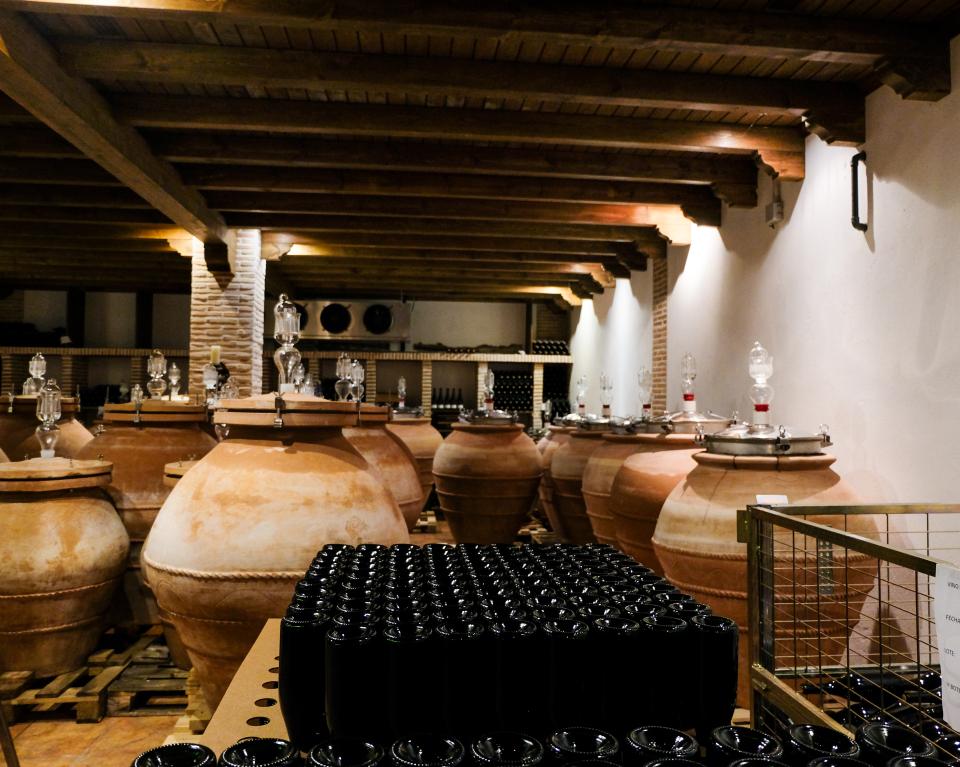
A dream came true when we all agreed to age the wines made under the eternal blue
sky in clay amphoras.
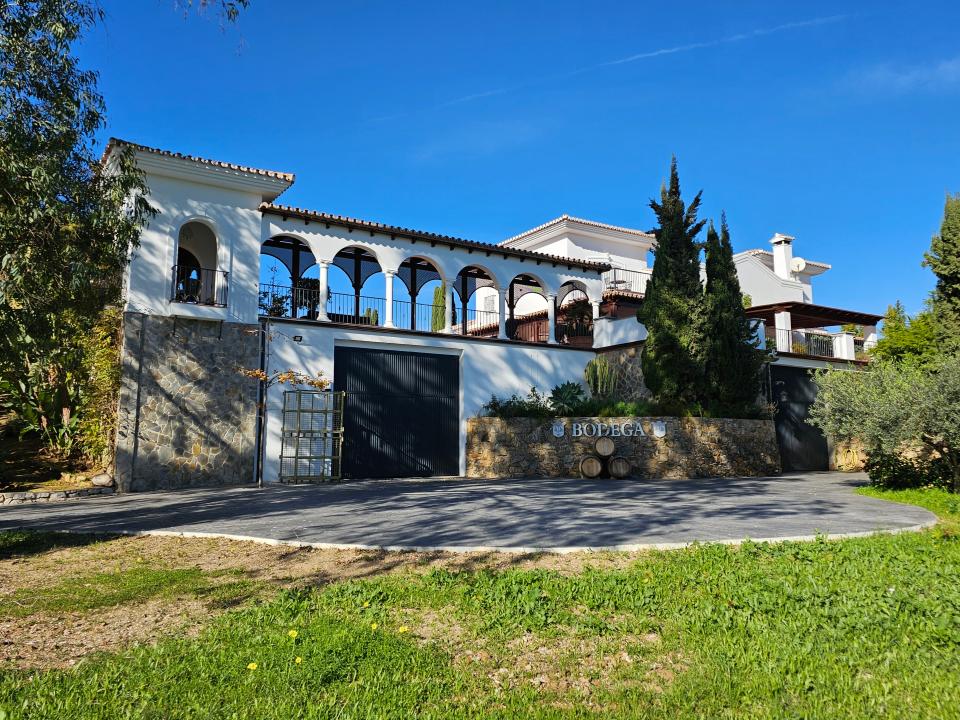
The entrance to the cellar may look a bit too prestigious for anarchist wine. It's
beautiful, though.
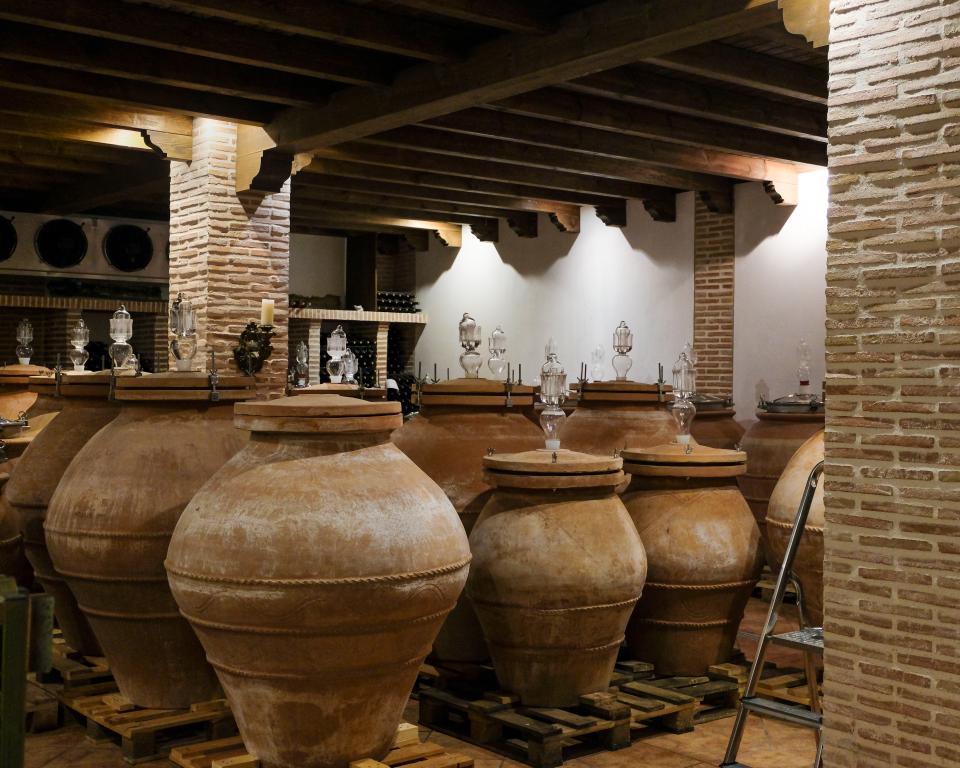
Clay amphoras offer a more mineral-driven aging process and impart a cool touch to
the wines. Additionally, they allow for faster micro-oxidation compared to wooden
barrels.
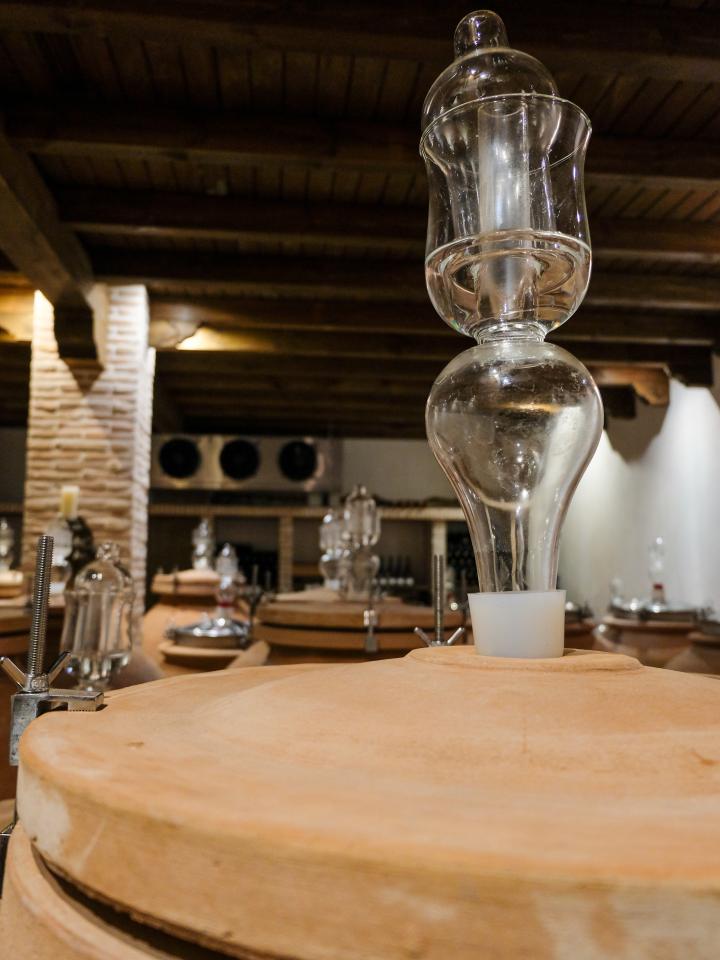
The wines are pressed only after nine to twelve months of fermentation on the skins.
The oxygen introduced during the pressing process stimulates the yeast to complete
the final stage of fermentation in the amphora.
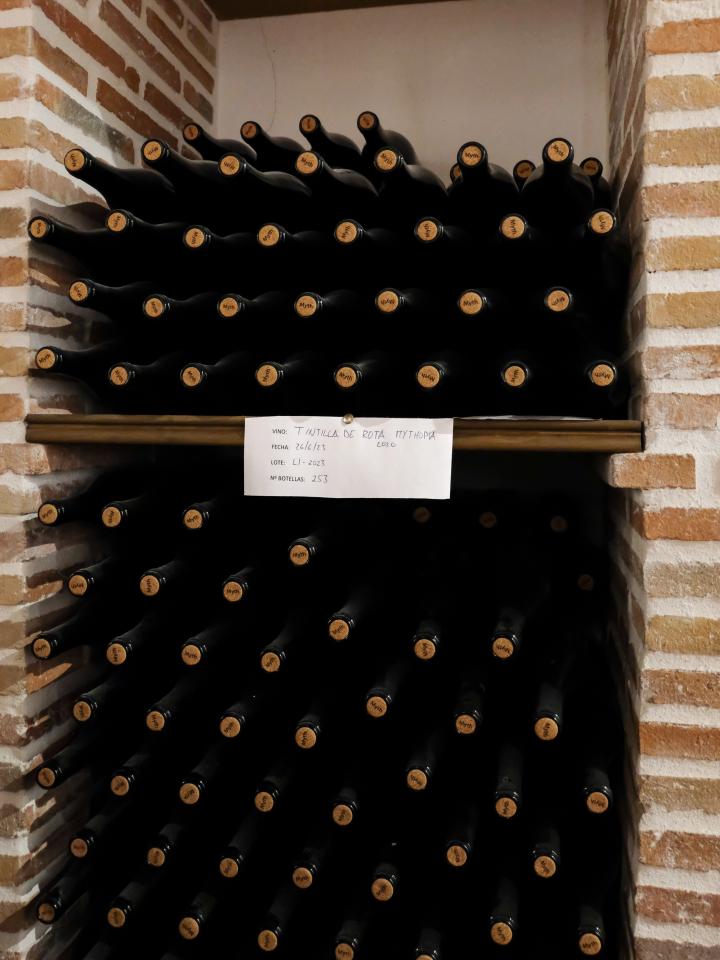
Brick storage for personal consumption.
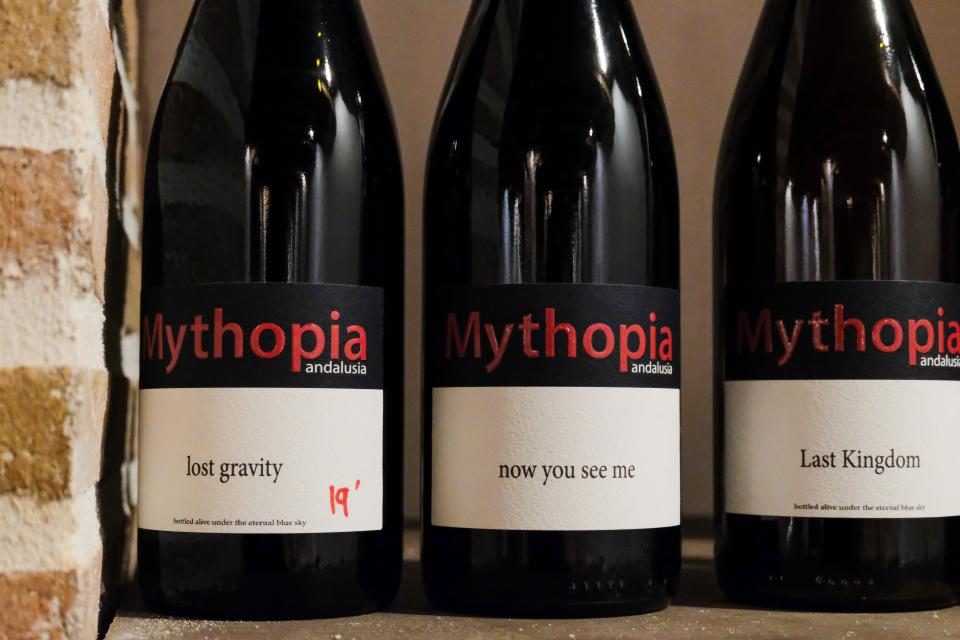
Three colors, red.
Alpine Mythopia is white, Occitans is blue.
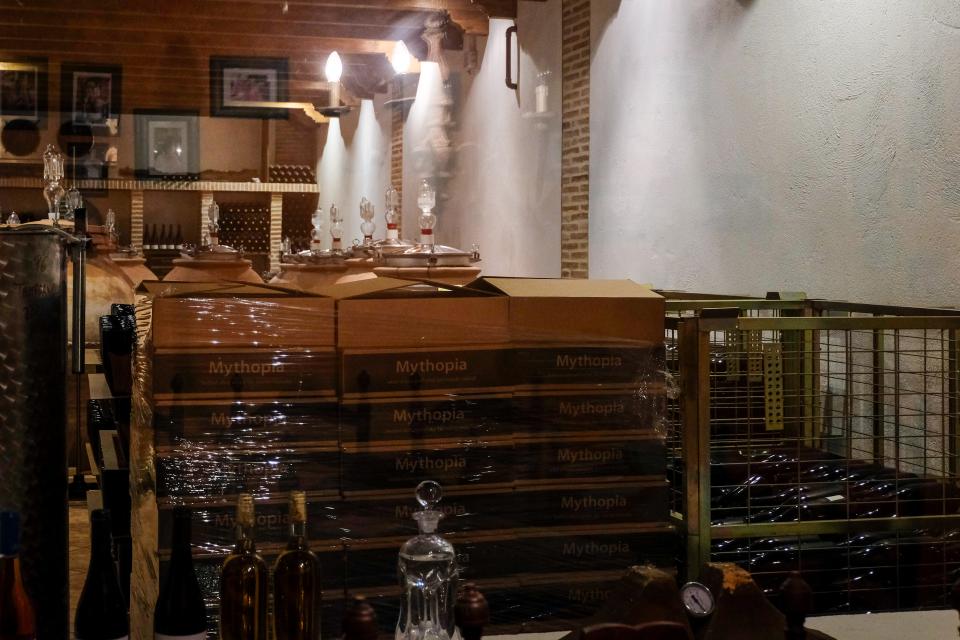
Wine bottling is at the earliest after three years of aging in amphoras. Add another
six months of bottle aging. Only the red sparkling will be released earlier.
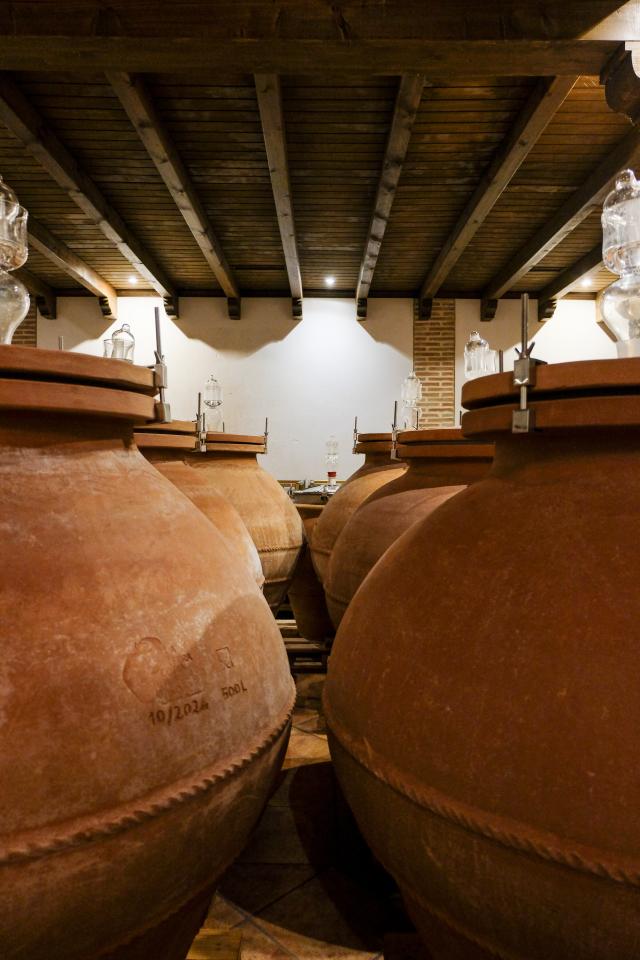
The amphoras hold between 200 and 600 liters. As with oak barrels, natural wines develop
uniquely in different vessels, even when the same wine from the same tank is used.
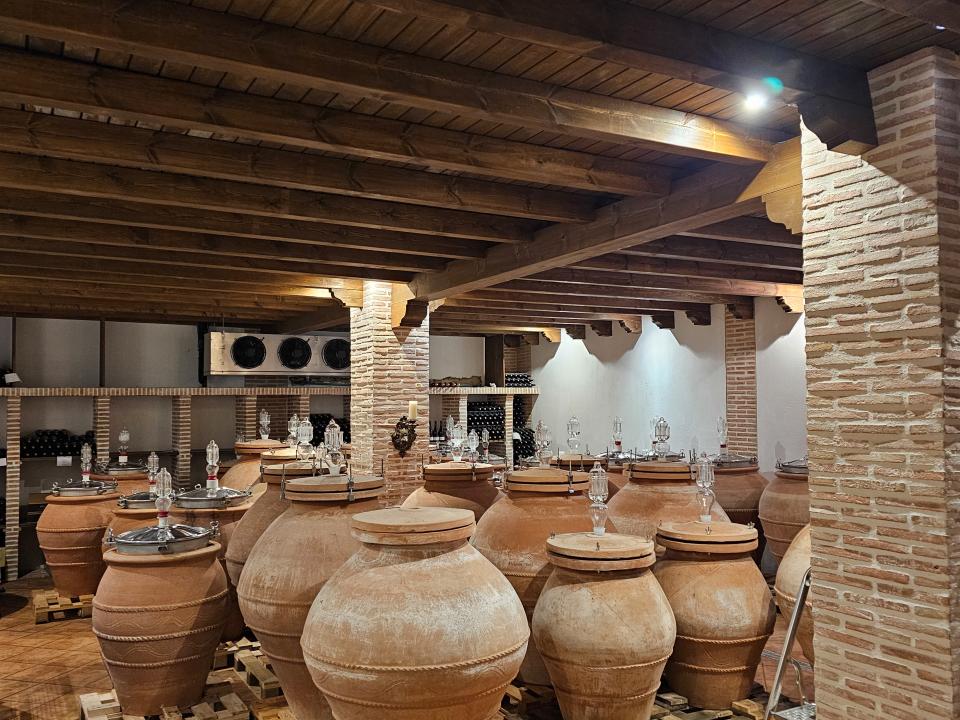
We keep the cellar temperature below 20 °C. The warmer conditions, compared to the
bone-cold cellars in the Alps, allow faster polymerization of wine phenols. However,
even higher temperatures would risk the wines and, in addition, increase losses due
to evaporation through the clay.
![[image/logo]](/img/mythopia_logo.jpg) Mythopia
Mythopia